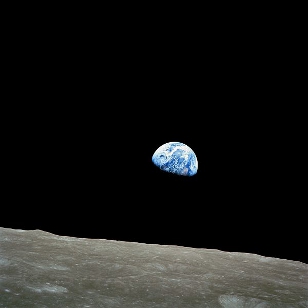Global
07/08/20 - RADIO: How They MadeUs Doubt Everything (10x15mins) How some of the world's most powerful interests made us doubt the connection between smoking and cancer, and then how the same tactics were used to make us doubt climate change.
01/08/20 - RADIO: The Moral Maze: The Death of the City? Our normally bustling cities have been eerily quiet for months. It’s reminiscent of the post-apocalyptic horror film, ‘28 Days Later’. The lockdown is proving costly; Westminster Abbey has lost more than £12 million in revenue this year and is set to lay off one in five of its staff. Theatre bosses say they must reopen without social distancing in time for Christmas or face oblivion. Restrictions are beginning to ease but for many cafes, pubs, shops, clubs and restaurants, the pandemic could be terminal. Museums, galleries, churches and office developments will struggle to justify their continued existence; should they be bailed out by the taxpayer? Perhaps each of us has a moral duty to head uptown on a shopping spree, take in a show and dine out? Yet this is about more than jobs and tourism; it raises bigger questions about the value we put on cities. If a ghost town is sad, a dead city is surely a tragedy. Since ancient Athens, cities, for many, have been the cultural jewels in civilisation’s crown, creative cauldrons of multicultural mingling and springboards to success. Others cite London, for example, as a social, cultural and economic drain on the life of our country. They believe that declining big cities give us an opportunity to revive towns, to end the suburban commuter crawl, beef up provincial culture, restore lost industries, embrace home-working and cut carbon emissions. Are big cities an unquestionable moral good, worth preserving in their current state? Or, in the new post-Covid world, is there a better way of organising the way we live? With Richard Burge, Paul Chatterton, Tom Cheesewright and Dr Jonathan Rowson.
23/05/20 - Allison Pearson: What we've lerant from the Great Pause From birdsong and clearer skies to acts of great kindness, there's a lot to celebrate from being holed up for two months. In a dark time, the eye begins to see. The words of the American poet Theodore Roethke felt especially resonant during the long weeks of the Great Pause. The well ordered, predictable life we had come to take utterly for granted was rudely overturned like a bar after a brawl. No one was untouched. Businesses have been lost, loved ones separated. Two members of my family had a nasty, persistent illness which we assumed was coronavirus. My son, stranded in London as the lockdown began, was unable to join us in the house of plague. Even worse was not being able to see elderly relatives who were frightened and alone. That’s the cruellest thing about Covid. They said, ‘We’re all in this together,’ but, too often, we have all been in this apart.
05/05/20 - RADIO: A Cure at What Cost (28 mins) What should the strategy be for getting out of lockdown? As Britain - and the rest of the world - braces itself for an economic crisis set to dwarf 2008, how do we emerge from the coronavirus pandemic saving as many lives as possible now without causing long-lasting damage? The science writer, Tom Chivers, doesn’t dispute the need for drastic action against Covid-19. He’s deeply concerned. But he's also worried about his children's future, the wide-ranging economic, social and political fallout from this shock, and the question of whether our strategies to deal with the pandemic might be doing more harm than good in the long run. The decisions being made now by our politicians, our doctors, our scientists and business leaders will affect us all for years to come. Tom meets with leading experts and asks whether the cure is always worth the cost.
25/03/20 - Covid-19 is nature's wake-up call to complacent civilisation George Monbiot: "A bubble has finally been burst – but will we now attend to the other threats facing humanity?"
07/11/19 - Climate Change Communicator of the Year - People’s Choice Award: Kathy Jetñil-Kijiner and Aka Niviâna are poets and activists from communities experiencing the impacts of climate change. Kathy is a writer and performer of Marshall Islander ancestry, and co-founded the non-profit Jo-Jikum, dedicated to empowering Marshallese youth to seek solutions to climate change and other environmental impacts threatening their home island. Aka is from Kalaallit Nunaat (Greenland) and started doing poetry with a wish to create nuanced conversations about not only climate change, but also colonialism and indigenous peoples rights. Together, they connected their realities of melting glaciers and rising sea levels in a poetic video called “Rise: From One Island to Another.”
29/11/17 - RADIO: A Picture Held Us Captive (30 mins) Novelist, Harvard Fellow and Social Entrepreneur Zia Haider Rahman explores the powerful impact the use and abuse of metaphor can have on the world around us.Metaphors are not simply there for the use of novelists or poets. They are integral to the way we think and understand - pervading our language and allowing us to conceptualise new and complex ideas, using familiar images. They are essential to areas of abstract study, where they provide the basis for new theoretical models, and play a vital role in communicating specialised knowledge to non-experts.But, Rahman argues, these compelling imaginary pictures can also become prisons, trapping our thought in over simplistic or entirely false versions of a more nuanced or entirely different reality. Drawing on examples from the worlds of biology, economics, business and environmental policy, he demonstrates the very real and damaging consequences these metaphors can have.Biologist Stephen Rose and Sociologist Hilary Rose discuss how the misleading metaphors of genetics built the popular enthusiasm for the field's apparently miraculous powers. Economist and Green MEP Molly Scott Cato explains what happened when the "natural capital" metaphor took on a life of its own. Economist John Weeks dissects the metaphors of austerity, "balancing the budget" and "the national credit card". And novelist and ex-McKinsey consultant Dina Nayeri demonstrates how the world of business pushes metaphors to the edge of meaning.
08/04/17 - RADIO: Archive on 4: Long Road to Change (58 mins) In an age when technology has made organising protest movements easier than ever before, journalist Zoe Williams asks why we aren't seeing long-term results. She looks back on the global history of activism to discover the pre-conditions needed for concrete change. Recent years have seen an explosion of protest movements to secure equality, protect immigrants, and demand justice. But often these movements are doomed to short-term impact. Does today's activism overlook the benefits of doing things the hard way? By digging into the archives, Zoe looks back to the most impactful protest movements of the 20th century that permanently changed history. By analysing what key elements are needed for success, she will construct new rules of modern-day activism for future generations. Finally, Zoe investigates how to overcome the obstacles that stand in the way of any protest - from radicals that disrupt non-violent marches to handling media coverage - and how government bodies may manipulate protests to their own advantage.
02/01/17 - The New World: Nothing but the Truth (45 mins) Are we really living in a post-truth world? It has been an extraordinary year for the concept of veracity. Brexit. Trump. Experts have taken a beating, facts have apparently taken second place to emotion and feeling. And what about truth? It seems like fewer and fewer people, whether voters or politicians, care what's true anymore. Step forward the Oxford English Dictionary's word of 2016: "post-truth". Is this just shorthand to help liberals make sense of a world they don't like? Or does it mark something more meaningful? Are we really no longer interested in truth or is our toxic political climate clouding our ability to agree on what the facts are? In a series of special programmes as 2017 begins, Radio 4 examines inflection points in the world around us. In the first of five programmes this week, Jo Fidgen explores how our brains process facts when they become polluted by politics.
11/07/16 - RADIO: A Point of View: After the Vote (15 mins) The philosopher Onora O'Neill criticises the standard of public debate on both sides of the European Union decision and asks how this democratic deficit can be repaired. "The disarray that we now witness, and the retractions, revelations and recriminations that spill out on a daily basis, show that large parts of each campaign failed to communicate with the public, did not offer adequate or honest accounts of the alternatives, and did not provide the basic means for voters to judge the real options, the real opportunities or the real risks." This is the first of a series of special editions of Radio 4's long-running essay programme, A Point of View, in which five of Britain's leading thinkers give their own very personal view of "Brexit" - what the vote tells us about the country we are, and are likely to become.
29/03/16 - RADIO: The Global Philosopher: Should Borders Matter (43 mins) Michael Sandel explores the philosophical justifications made for national borders. Using a pioneering state-of-the-art studio at the Harvard Business School, Professor Sandel is joined by 60 participants from over 30 countries in a truly global digital space. Is there any moral distinction between a political refugee and an economic migrant? If people have the right to exit a country, why not a right to enter? Do nations have the right to protect the affluence of their citizens? And is there such a thing as a 'national identity'? These are just some of the questions addressed by Professor Sandel in this first edition of The Global Philosopher.
floating a few feet above a field somewhere,
Taken by Apollo 8 crewmember Bill Anders on December 24, 1968, showing the Earth seemingly rising above the lunar surface. Note that this phenomenon is only visible from someone in orbit around the Moon. Because of the Moon's synchronous rotation about the Earth (i.e., the same side of the Moon is always facing the Earth), no Earthrise can be observed by a stationary observer on the surface of the Moon.
On the 40th anniversary of the famous ‘Blue Marble’ photograph taken of Earth from space, Planetary Collective presents a short film documenting astronauts’ life-changing stories of seeing the Earth from the outside – a perspective-altering experience often described as the Overview Effect.
Severn Suzuki speaking at UN Earth Summit 1992 & Rio+20
Planetary Boundaries Reseach
In 2009, a group of 28 internationally renowned scientists identified and quantified a set of nine planetary boundaries within which humanity can continue to develop and thrive for generations to come. Crossing these boundaries could generate abrupt or irreversible environmental changes. Respecting the boundaries reduces the risks to human society of crossing these thresholds.

